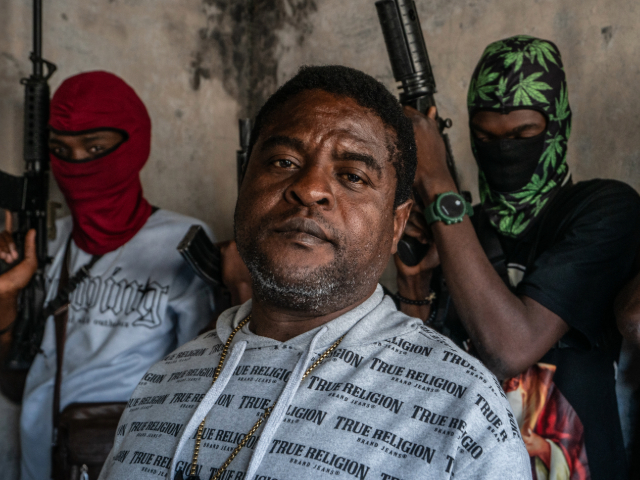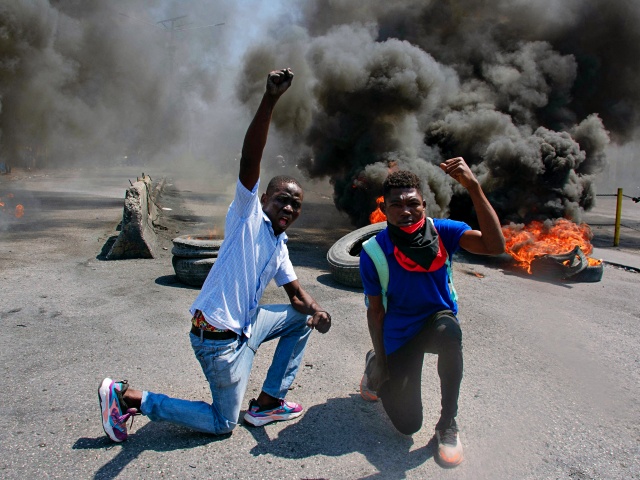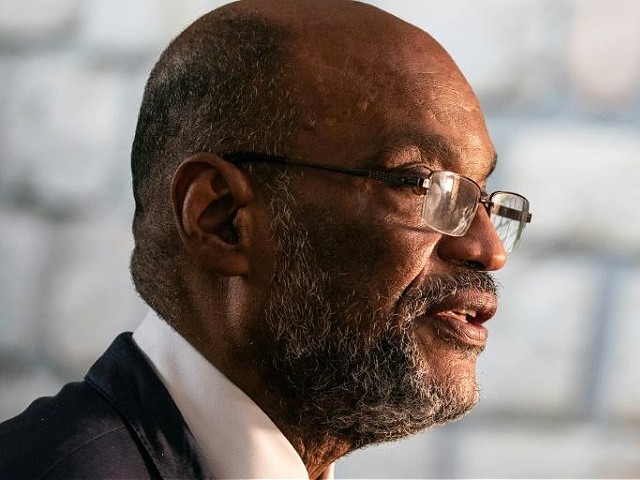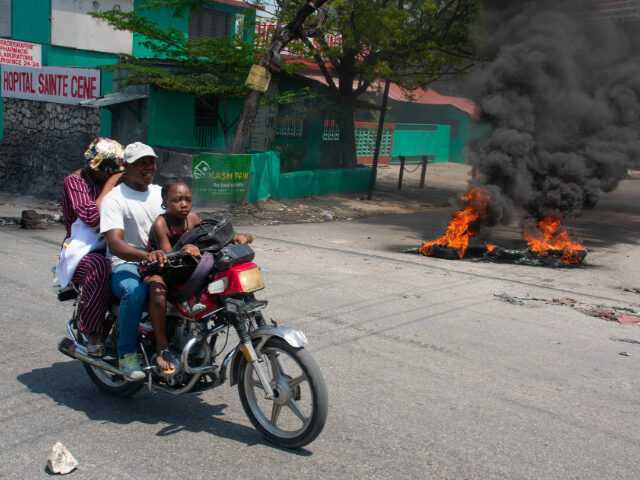More than 53,000 people have fled Port-au-Prince, Haiti, from March 8 to 27, 2024, as a result of rampant gang violence escalating following Prime Minister Ariel Henry’s trip to Kenya, the United Nations revealed Tuesday.
Armed gangs led by boss Jimmy “Barbecue” Cherizier have been trying to forcefully take control of the country since February, leading thousands to seek refuge in neighboring areas, including Haiti’s rural southern region, which is still devastated from the 2021 earthquake.

Gang leader Jimmy “Barbecue” Cherizier with G-9 federation gang members in the Delmas 3 area on February 22, 2024, in Port-au-Prince, Haiti. (Giles Clarke/Getty Images)
“The International Organization for Migration tells us that between 8 and 27 March, more than 53,000 men, women and children left Port-au-Prince,” U.N. Spokesman for the Secretary-General Stéphane Dujarric said during a Tuesday press briefing. “The majority of them are heading towards the Grand Sud departments.”
“Our humanitarian colleagues emphasized that these departments do not have the sufficient infrastructure and host communities do not have sufficient resources to cope with the large number of people fleeing Port-au-Prince,” he continued.
The armed gangs control large swathes of Port-au-Prince, including its main port and many of the city’s access roads. The gangs have vandalized or outright destroyed several of the nation’s hospitals and pharmacies.
The gangs have also taken control of the State University of Haiti Hospital (HUEH) in Port-au-Prince, turning it into a “fortress” for their continued war against Haiti’s national police forces, one of the last functional institutions left in the country.
The gangs used the seized hospital’s facilities to stage a new attack on the National Palace on Monday. At least one policeman was reported shot while fleeing an armored car alongside other officers after gang members set it on fire with them inside. The National Palace and the Toussaint Louverture International Airport in Port-au-Prince have remained under police protection since the start of the wave of violence in February.

Protesters react while tires burn in the street during a demonstration following the resignation of Haitian Prime Minister Ariel Henry in Port-au-Prince, Haiti, on March 12, 2024. (Clarens SIFFROY/AFP)
U.N. High Commissioner for Human Rights Volker Türk asserted in remarks to the U.N. Human Rights Council on Tuesday that Haiti’s situation has led to an “unprecedented” scale of human rights abuses, stressing a documented “shocking rise in killings and kidnappings” as well as widespread sexual violence.
“First and foremost, the immediate priority must be restoring a degree of public order to prevent further harm to the population from violence and to ensure access to life-saving humanitarian assistance,” Turk said.
Haitian Prime Minister Ariel Henry remains stranded in Puerto Rico and unable to return to his country. Henry announced plans to resign in early March but said he would step down only after local politicians finalize the formation of a nine-man transitional council tasked with selecting a new prime minister.

Haitian Prime Minister Ariel Henry (VALERIE BAERISWYL/AFP via Getty Images)
The council is allegedly “nearly complete,” currently consisting of eight of the nine members necessary. On March 27, the still-incomplete council issued its first statement, in which it vowed to alleviate the suffering of the Haitian people and restore public order, stressing it would “put Haiti back on the path of democratic legitimacy, stability, and dignity” as soon as it is empowered.
Haiti has not had an election since 2016 and has not had a president since the assassination of President Jovenel Moïse in 2021, who was shot dead in the presidential residence.
The United Nations released a report on Thursday describing Haiti’s situation as “cataclysmic,” documenting that the wave of gang violence has left at least 1,554 killed and 826 injured as of March 22, 2024. In 2023, 4,451 were reported killed and 1,668 injured.
Christian K. Caruzo is a Venezuelan writer and documents life under socialism. You can follow him on Twitter here.

COMMENTS
Please let us know if you're having issues with commenting.